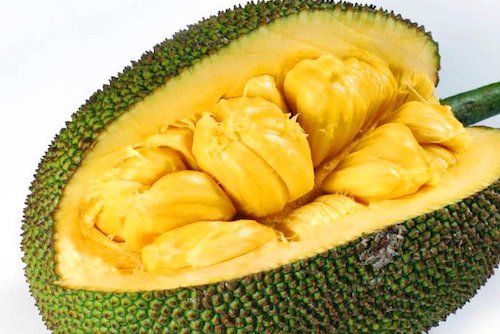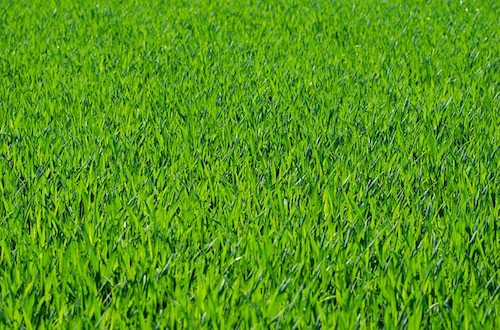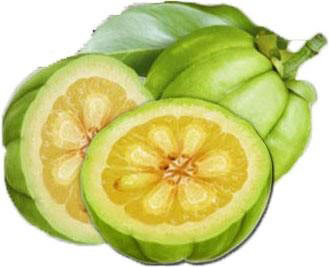Lemon, the citrus tree, often recognized for its vibrant yellow fruit, stands as a symbol of freshness and vitality in many cultures. Originating from Southeast Asia, it has traversed the globe, finding a home in diverse climates and terrains. Known for its rich content of vitamin C, the tree’s fruit has been utilized for culinary, medicinal, and cosmetic purposes. Its tangy flavor and aromatic zest enhance a myriad of dishes, while its therapeutic properties offer numerous health benefits. Moreover, the tree’s fragrant blossoms and evergreen leaves add aesthetic value to gardens, making it a favorite among horticulturists and home growers alike.
Table of content
Useful in erectile dysfunction
About Lemon Tree
The lemon tree, scientifically known as Citrus limon, is a perennial plant belonging to the Rutaceae family. Characteristically medium in size, mature trees typically reach heights of 10 to 20 feet, although some can grow taller under ideal conditions. The tree’s bark is smooth and light gray, while its branches are often adorned with sharp thorns, offering a stark contrast to its vibrant fruit.
One of the most distinctive features of the lemon tree is its foliage. The evergreen leaves are elliptical to oblong in shape, displaying a rich, dark green color on the upper surface and a lighter hue beneath. These leaves exude a pleasant aroma when crushed, a trait common to many citrus species.
The tree’s blossoms are equally alluring. These flowers, usually white with a hint of purple or pink on the underside, emit a sweet, intoxicating fragrance. As they transition into fruit, the development is marked by stages of green, maturing to the iconic bright yellow that lemons are universally recognized for.
Furthermore, beneath the fruit’s zesty outer rind lies the juicy, segmented pulp. This is the edible part, cherished for its tangy flavor and myriad of uses in various culinary and medicinal applications. The entirety of the lemon tree – from root to fruit – embodies the rich tapestry of nature’s offerings.
Lemon in ayurveda
In Ayurveda , the lemon is commonly referred to as:
1. जम्बीर (Jambeera)
2. निम्बूक (Nimbūka)
It’s worth noting that while “Nimbu” is widely used in contemporary Hindi to refer to lemon, its origin is traced back to Sanskrit. The term “Nimbūka” is more classical and can be found in ancient Sanskrit ayurveda texts describing the fruit. It is also known as Jambeera in ayurveda.
Effect of lemon on dosha
In Ayurveda, the three doshas (Vata, Pitta, and Kapha) represent combinations of the five elemental energies and determine an individual’s constitution. Lemons play a distinctive role in balancing these doshas. Being sour in taste, lemons primarily pacify Vata and increase Pitta and Kapha. However, when lemon is consumed as a warm drink with water, it becomes alkaline, which can actually help in pacifying Pitta. Its refreshing and cleansing properties support digestion, eliminate toxins, and provide a balancing effect, especially for Vata disorders. Yet, excessive consumption can aggravate Pitta, leading to acidity or heat-related issues. Proper moderation, considering one’s unique constitution, is key.
Ayurveda Medicinal Properties of Lemon
In Ayurveda, foods and herbs are analyzed based on certain key attributes that determine their impact on the body’s balance and doshas. For lemon, these attributes are described as follows:
1. Rasa (Taste):
The primary rasa of lemon is “Amla” or sour. This sour taste primarily pacifies Vata and can increase Pitta and Kapha when consumed in excess.
2. Guna (Quality):
Lemon is described to have the “Laghu” (light) and “teekshna” (piercing) gunas. These qualities make it effective in counteracting heavy and oily imbalances in the body, which can be particularly beneficial for Kapha types.
3. Veerya (Potency/Energy):
Lemon is considered to have “Ushna” (hot) veerya. This means it has a warming energy, which can be stimulating and can increase Pitta if consumed in large quantities.
4. Vipaka (Post-digestive effect):
After digestion, lemon has a “amla” (sour) vipaka. This post-digestive effect further reinforces its ability to stimulate digestion and metabolism.
It’s essential to understand that while lemons have these inherent properties, their effects can be modified based on how they are consumed. For instance, adding sweeteners or consuming lemon with warm water can temper some of its heating or Pitta-aggravating qualities. Always consider the overall context and individual constitution when incorporating any food or herb into a dietary routine.
Ayurvedic actions of lemon
In Ayurveda, the properties and effects of foods and herbs are described using specific terms that explain their actions on the body and mind. Lemon, revered for its versatile applications, is no exception. Here’s an analysis of the Ayurvedic properties of lemon under the given headings:
1. Vakrashodhi:
This term translates to “purifier of channels.” Lemon, due to its sour taste and penetrating qualities, aids in cleansing the subtle channels (srotas) of the body, ensuring smooth flow and functioning.
2. Rochana:
Rochana refers to “stimulating” or “appetizing.” Lemon has a property that stimulates the digestive fire (Agni) and enhances appetite, making it useful for individuals with low appetite or sluggish digestion.
3. Dantaharshana:
This suggests an effect on the teeth. While not a classic Ayurvedic term for lemon, its sourness and acidity, when consumed excessively, can potentially harm tooth enamel, leading to dental sensitivity. It’s advised to rinse the mouth after consuming concentrated lemon juice.
4. Trushna Nivarana:
Trushna means “thirst,” and nivarana means “relief” or “alleviation.” Lemon juice, when added to water, acts as a refreshing drink, quenching thirst and hydrating the body.
5. Shula Nivarana:
Shula refers to “pain” and in this context, typically abdominal or digestive pain. Lemon can help alleviate certain digestive discomforts due to its ability to balance digestive enzymes and promote smoother digestion.
6. Kasa Nivarana:
Kasa means “cough.” Lemon, with its vitamin C content and warmth, can aid in alleviating cough, especially when combined with honey or ginger.
7. Kaphotklesha:
Referring to “disturbance or affliction caused by Kapha,” lemon, being light (laghu) and piercing (teekshna), can counteract excess Kapha dosha, helping in conditions like congestion or excess mucus.
8. Chardi Nivarana:
Chardi means “vomiting” or “nausea.” Lemon can help in controlling nausea or morning sickness, often recommended in mild quantities during early pregnancy or during travel.
9. Trishnahara (Thirst alleviating):
Lemon juice, especially when mixed with water, can help quench thirst. Its cooling post-consumption effect provides relief from excessive thirst, making it a favorite during hot weather or for those experiencing dehydration.
10 Amadoshahara (Ama reducing):
‘Ama’ refers to the toxic byproduct of incomplete digestion. Lemon aids in digestion and helps detoxify the body, thereby reducing Ama. Its sour taste stimulates the secretion of digestive enzymes, which helps in the efficient breakdown of food.
11. Asyavairasyahara (Relieving tastelessness):
Lemon is known to enhance appetite and taste perception. If someone is experiencing a lack of taste or a feeling of tastelessness in the mouth, consuming lemon can stimulate the taste buds and rejuvenate the sense of taste.
12. Hrutpeeda hara (Alleviating heart pain):
While not a substitute for modern cardiac care, traditionally, lemon was believed to provide relief from certain types of heart-related discomfort, possibly due to its vitamin C content and other beneficial compounds.
13. Vahnimandyahara (Relieving slow digestion):
‘Vahni’ refers to the digestive fire. Lemon can rekindle a sluggish digestive system. It stimulates the agni (digestive fire), helping in the effective digestion of food and preventing indigestion.
14. Krumihara (Antiparasitic):
Lemons, due to their antiseptic properties, can act against certain parasites and worms in the digestive system. The acidic nature of lemon can create an inhospitable environment for harmful microorganisms.
15. Vishahara (Neutralizing poison or toxins):
Traditionally, lemon has been believed to have the capability to neutralize certain toxins. While it is not an antidote in the modern sense, its detoxifying properties can support the body in eliminating harmful substances.
Ayurveda Health Benefits of Lemon
Lemon, a vibrant citrus fruit, is globally celebrated not just for its culinary versatility but also for its myriad health benefits. Packed with vitamin C, it bolsters the immune system, aiding in the battle against common colds and infections. Its alkalizing properties, once metabolized, help maintain the body’s internal pH balance. Furthermore, the citric acid in lemon supports healthy digestion and aids in detoxification. Rich in flavonoids, lemons have antioxidant properties that combat free radicals, potentially reducing the risk of chronic diseases. Additionally, its zest and juice have been used traditionally for their potential to rejuvenate skin and enhance its glow.
Helps in liver detox.
The liver, a vital organ, plays a pivotal role in detoxifying the body, metabolizing nutrients, and producing essential proteins. Aiding its function is essential for overall health. Lemon, with its unique composition of nutrients, supports this detoxification process in various ways. This is the best fruit for people with fatty liver.
Firstly, the high vitamin C content acts as an antioxidant, combating oxidative stress in the liver. Oxidative stress can impair liver function and is a contributing factor to liver diseases. By neutralizing free radicals, vitamin C helps protect liver cells from damage.
Citric acid, a key component of the fruit, can enhance the liver’s ability to produce bile, a digestive juice that facilitates the emulsification and breakdown of fats in the digestive system. An efficient bile flow ensures that fats are metabolized properly, reducing strain on the liver.
Moreover, bioflavonoids present can assist in improving liver enzyme levels and decreasing inflammation. This helps in the removal of toxins and can even aid in the regeneration of liver cells.
Additionally, the alkalizing effect of the fruit, once metabolized, helps maintain a balanced internal environment. This balance promotes optimal liver function, making it easier for the liver to process and eliminate toxins from the body.
Incorporating this citrus fruit into a balanced diet can therefore act as a supportive measure for liver health and detoxification.
Useful in erectile dysfunction
Erectile dysfunction (ED) can be influenced by various factors, including circulatory issues, hormonal imbalances, psychological stressors, and certain underlying diseases. There’s emerging evidence to suggest that certain natural remedies, including the incorporation of dietary components, can aid in addressing some root causes of ED.
Lemon is rich in vitamin C, a potent antioxidant that supports blood vessel health. A healthy vascular system is crucial for achieving and maintaining an erection, as erectile function relies on adequate blood flow to the penis. Vitamin C can enhance endothelial function, leading to improved blood vessel dilation and increased blood circulation.
Additionally, chronic inflammation and oxidative stress can be contributing factors to ED. The antioxidant properties found in lemons can combat oxidative stress, reducing inflammation at the cellular level, and potentially supporting erectile function.
Furthermore, the zest of the fruit contains flavonoids, which are believed to enhance the production of nitric oxide in the body. Nitric oxide acts as a vasodilator, improving blood flow, which is vital for a firm erection.
However, while the nutrients in lemon may contribute positively to vascular health and other systems related to ED, it’s essential to approach the topic holistically. Lifestyle, psychological factors, and underlying health conditions should also be considered, and consulting a healthcare professional is always recommended.
Good for PCOS
Polycystic Ovary Syndrome (PCOS) is a common hormonal disorder affecting many women of reproductive age. Incorporating certain dietary and lifestyle changes can help manage its symptoms, and one such beneficial addition is lemon. Rich in vitamin C, it plays a crucial role in managing oxidative stress, often elevated in women with PCOS. This antioxidant property helps combat free radicals, which if unchecked, can exacerbate inflammation and insulin resistance, both commonly linked to PCOS.
The fruit also assists in liver detoxification, promoting the elimination of toxins and aiding in the hormonal balance. By supporting liver function, it ensures efficient metabolism of hormones, which can be pivotal for those with PCOS. Additionally, the high dietary fiber content found in its zest can be beneficial in stabilizing blood sugar levels, potentially reducing insulin resistance, a frequent concern with PCOS.
Moreover, the alkalizing effect of this citrus fruit, once metabolized, helps in maintaining an optimal internal pH balance. This is important as an acidic environment can contribute to inflammation, further complicating PCOS symptoms. By introducing it into a balanced diet, along with other holistic measures, one can potentially alleviate certain challenges posed by PCOS.
Aids in diabetes
Lemon stands as a beacon of hope for many looking for natural adjuncts in managing diabetes. Its high vitamin C content acts as an antioxidant, reducing the oxidative stress that often accompanies elevated blood sugar levels. This is particularly important, as prolonged oxidative stress can exacerbate complications associated with diabetes.
The soluble fiber and bioflavonoids found in the citrus fruit might assist in improving blood sugar control. These compounds can slow the absorption of sugars from the digestive tract, leading to a more gradual rise in blood sugar after meals. Moreover, the citric acid and other phytonutrients present have been researched for their potential role in enhancing insulin sensitivity, making it easier for the body to take up glucose.
Another noteworthy aspect is the fruit’s low glycemic index. When incorporated into a balanced diet, it can help ensure that blood sugar levels remain stable. Furthermore, drinking water infused with this citrus can be a refreshing way to stay hydrated without resorting to sugary drinks, which can spike blood glucose levels.
It’s essential, however, to be mindful of consumption, especially if one is on diabetes medication, to prevent unintended interactions or excessively lowered blood sugar levels. As always, consultation with healthcare professionals before making dietary changes is advised.
Accelerates weight loss
Lemon is a staple in many weight loss regimens, and its popularity in this realm is backed by several mechanisms that support the shedding of excess pounds. First and foremost, it’s a rich source of vitamin C, a powerful antioxidant known to boost metabolism. An increased metabolic rate allows the body to burn calories more efficiently, making weight management easier. Additionally, the soluble pectin fiber found in this citrus fruit can help reduce hunger cravings. When consumed, this fiber expands in the stomach, creating a feeling of fullness and thereby curbing the urge to snack or overeat.
Moreover, the fruit’s natural diuretic properties can assist in reducing water retention, which often contributes to temporary weight gain. Furthermore, its alkalizing effect, once metabolized, is believed to help the body break down fat more effectively. Many individuals incorporate warm water infused with its juice into their morning routine, not only for its refreshing taste but also for its potential to stimulate the liver’s detoxifying processes. By assisting the liver in flushing out toxins, the body’s overall ability to metabolize fat can be enhanced. While it’s essential to approach weight loss holistically, incorporating this citrus fruit can offer a beneficial boost to one’s efforts.
Improves skin health
The vibrant citrus fruit has long been revered for its beneficial effects on skin health. Its high vitamin C content plays a pivotal role in promoting a radiant complexion. Vitamin C is an antioxidant that combats free radicals, which can cause premature aging, wrinkles, and sun damage. Regular application or consumption aids in collagen production, ensuring skin remains elastic and youthful.
Beyond its antioxidant properties, the fruit’s natural acidity acts as an exfoliant, helping to slough off dead skin cells and reveal a brighter skin layer underneath. This natural exfoliation can also assist in reducing dark spots and evening out skin tone. Furthermore, its antibacterial properties can be particularly beneficial for those battling acne; the citric acid cleanses and can help unclog pores, reducing the potential for breakouts.
For those with oily skin, the astringent qualities can help tighten and tone the skin, reducing excess oiliness and refining the appearance of pores. Moreover, when diluted, it can act as a gentle skin toner, balancing the skin’s pH levels.
However, it’s essential to approach topical applications with caution. Given its acidic nature, direct application might irritate sensitive skin. Always dilute it and conduct a patch test before broader use. And due to its photosensitive nature, it’s vital to use sunscreen when stepping out after application.
It’s crucial to remember that while Ayurveda acknowledges the diverse benefits of lemon, it’s always essential to consider individual constitution, current health conditions, and consult with an Ayurvedic practitioner before making significant changes to one’s dietary or health regimen.
While lemon offers a plethora of benefits, it’s vital to understand one’s individual constitution and current state of health. This ensures that lemon, or any Ayurvedic remedy, is used optimally and beneficially.
Reference:
https://www.ncbi.nlm.nih.gov/pmc/articles/PMC6403313/
https://www.ncbi.nlm.nih.gov/pmc/articles/PMC7020168/







Pingback: 6 Important Ayurvedic Treatments for Obesity or Weight Loss
Pingback: Benefits and Uses of Mango Fruit, Leaf , Flower , Bark and Seed
Pingback: Ayurvedic Indian Home Remedies for Impotence
Pingback: Ayurveda or Ayurvedic Diet Plan For PCOS
Pingback: 9 Best Ayurvedic Home Remedies for PCOS or PCOD
Pingback: Ayurveda Liver Detox - An Easy Liver Cleansing Guide
Pingback: Health Benefits and Uses of Gotu Kola or Centella Asiatica - Ayurveda Remedies, Tips and Treatment
Pingback: Ayurvedic Home Remedies for Headaches
Pingback: Ayurvedic Treatment and Remedies for Indigestion
Pingback: Ayurveda Agni or Body Fire or Metabolism and Digestion Process
Pingback: Ayurveda Vata Dosha - Body Type and Balancing Tips
Pingback: Amla rasa or Sour Taste in Ayurveda
Pingback: Five Effective Ayurvedic Tea Recipes for Weight Loss
Pingback: Tomato Health Benefits and Ayurveda
Pingback: 4 Ayurvedic Juice Recipes for Effective Weight Loss
Pingback: Ayurveda Health Benefits of Fennel or Saunf
Pingback: Cinnamon or Dalchini Uses and Benefits - An Ayurveda View
Pingback: What is Diet in Ayurveda ?
Pingback: How to Detox Male Reproductive System ? Ayurvedic Way
Pingback: Ayurvedic Daily Detox at Home for Weight Loss
Pingback: Ayurveda Health Benefits and Uses of Honey
Pingback: How to Lose Weight Fast - An Ayurveda Way
Pingback: Ayurveda Health Benefits of Cucumber
Pingback: Rakta dhatu (Blood ) in Ayurveda
Pingback: Ayurveda Health Benefits of Sugarcane Ikshu Saccharum officinarum
Pingback: Ayurveda Health Benefits and Uses of Tulsi (Ocimum Sanctum )
Pingback: An Ayurvedic Skin Detox at Home
Pingback: Health Benefits of Green Gram - Moong/dal/sprouts- Vigna radiata (mung)
Pingback: Ayurvedic Home Remedies for Weight Loss After Delivery